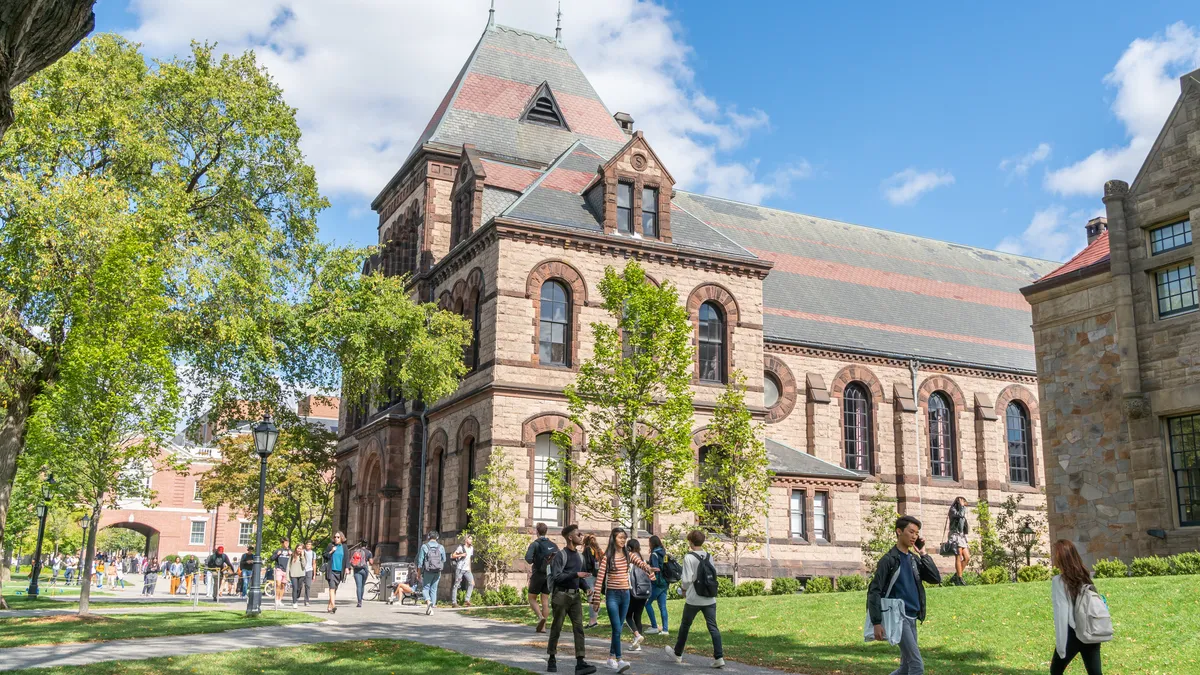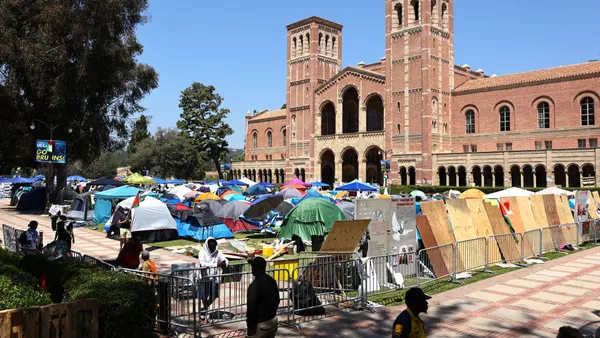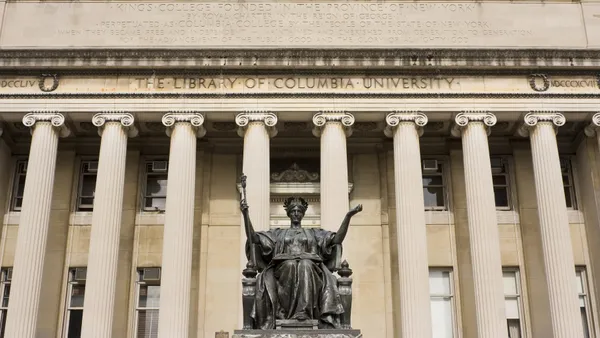More than 180 colleges and 40 higher education associations have filed briefs with the U.S. Supreme Court defending the Deferred Action for Childhood Arrivals (DACA) program, which allows some 700,000 undocumented immigrants to study and work in the U.S. in two-year blocks.
The court agreed to take up the issue of whether the DACA program is legal earlier this year and expects to reach a decision by mid-2020. The groups filed their briefs last week ahead of oral arguments scheduled in November.
Some of the colleges have argued that rescinding DACA would drain their campuses of talent, diversity and leadership, and "undermine the many years of investments" they've made to support undocumented students.
The amici briefs highlight the broad support for DACA among colleges. For example, in a brief filed Friday, 44 higher education associations argued that rescinding the program would "irreparably damage the reputation of America's higher education system" throughout the world.
Led by the American Council on Education (ACE), the associations included six regional accreditors and a wide range of prominent higher education organizations, such as The College Board and technology group Educause.
“(The brief) covers pretty much the entire universe and spectrum of higher education in terms of the associations being represented,” said Peter McDonough, general counsel for ACE, in an interview with Education Dive.
A 'unified position'
Colleges have also voiced their support for the program.
The Presidents' Alliance on Higher Education and Immigration filed a brief Friday that was joined by 165 colleges, including those with large populations of undocumented students such as California State University. That same day, a group of 19 elite colleges, including seven Ivy League schools, filed a similar brief.
At issue is whether the Trump administration had the legal authority to end the program, which was established in 2012 under the Obama administration by executive order, but now the Supreme Court has a clear conservative majority. Oral arguments kick off on Nov. 12.
"I have to believe that the Supreme Court takes notice of the intensity and breadth of the unified position on this one," McDonough said. "How they factor that into their consideration, and the ultimate outcome, is anyone's guess. But it's significant."
However, eight states have filed briefs arguing to end the program, including Texas, where more than 100,000 DACA recipients reside, according to the Center for American Progress.
Building support
As the legal challenge against DACA has worked its way through the lower courts, many colleges have strengthened their support services for undocumented students.
For instance, the University of Utah opened a Dream Center in its Office of Undergraduate Studies to help undocumented students navigate the academic and legal challenges they may face, and to train staff and faculty on issues affecting that population.
"There's always this thing in the back of (DACA students') heads of like, 'Oh, what if it ends?'" Alonso Reyna Rivarola, the center's program manager, told Education Dive. "Having that tension in your day to day, plus academic work and expectations, it becomes really challenging to learn how to manage it."
Research backs that up. A survey last year of 1,400 undocumented students who've received scholarships from the nonprofit TheDream.US found that more than 80% were "very anxious" about their immigration status and that many were afraid of crossing state lines.
The Dream Center's staff has had to make constant adjustments to its services in response to court decisions and policy changes in order to help such students, said Reyna Rivarola, who is a DACA recipient.
"However long I have, I plan to continue working with students and making sure that they have access to resources they need," he said. "Ultimately, why we are in higher ed is because we are here to support students, right?"












